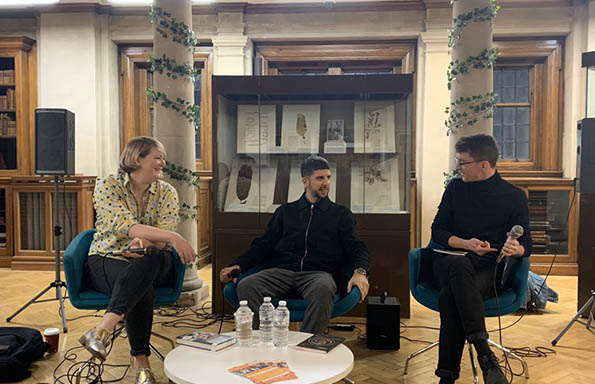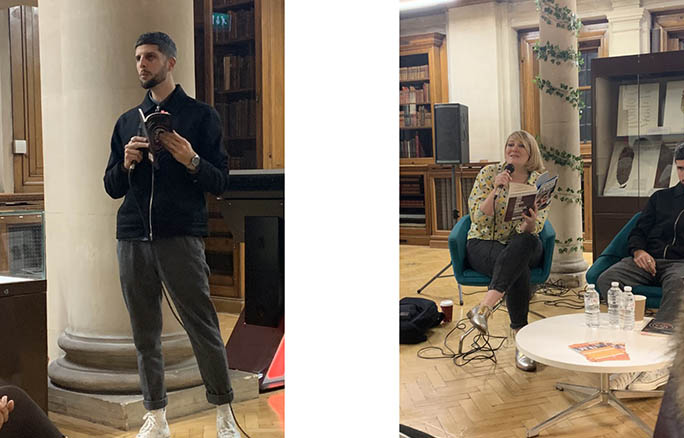
Liverpool’s Centre for New and International Writing was thrilled to recently welcome Anthony Anaxagorou and Kerry Hudson to Liverpool’s Central Library. During the event both writers read from their newly published books, which explore class and social inequality, and have met with commercial and critical success. Anaxagorou’s After the Formalities was selected as a Poetry Book Society Choice and shortlisted for the T S Eliot Prize, while Hudson’s Lowborn has been longlisted for the Gordon Burn Prize, The Portico Prize and shortlisted for the Saltire Scottish Non-Fiction Book of the Year.
Alongside their critical accolades, Anaxagorou and Hudson have ensured that the social issues discussed in their books remain a focus in their working lives. During our audience Q&A, Anaxagorou spoke about his work with inmates in the prison system – working to engage them with literature – while addressing the structural disadvantages inherent in the class system. Quoting from the book, Anaxagorou questions ‘how many bruises does it take to make a single body?’ – challenging the systematic disadvantage that criminalises the working class and converts them into bodies in jail cells, rather than vulnerable citizens in need of support. Hudson developed this discussion by exploring the psychology of poverty – stating that if an individual escapes the higher rates of criminalisation, poverty or abuse they inherit at birth they’re still left with the psychological remnants of what life could have been like. Hudson has devoted a significant amount of time to working with community groups in libraries – taking Lowborn back to the library networks she relied upon as a child.

After years of austerity, and entrenched poverty, it was pertinent to host both writers here in Liverpool – a city that has faced a sixty-four percent cut in its overall budget since 2010, contains several of the UK’s most deprived wards, and was Hudson’s home while writing Lowborn. With an ever-increasing number of people experiencing the lives of hardship written about by Anaxagorou and Hudson, our event wished to echo the dedication of Hudson’s book - ‘all of you who have lived this story too’ – to provide a safe space for these stories to be heard, recognised and resonate. Whether you’re working class, or a sympathetic ally, Anaxagorou and Hudson highlighted the social issues facing society today – detailing their lived experiences with honesty and poignancy. It’s now our task, as individuals with varying levels of privilege, to make sure these conversations remain heard – ensuring our academic community reaches beyond its campus boundaries to champion marginalised narratives.
Lewis Johnson, PhD student, English Department